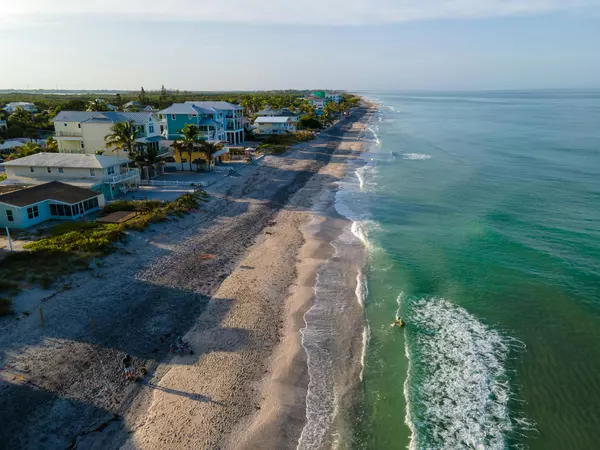Flood zones: What homebuyers need to know

Englewood, Florida, is a picturesque community known for its natural beauty and proximity to the Gulf Coast. However, as with many coastal areas, understanding flood zones is crucial for homebuyers. With the potential for flooding due to heavy rains, storm surges, and rising sea levels, it’s essential for prospective homeowners to be well-informed. Here’s what you need to know about flood zones and how to navigate the home-buying process in Inglewood.
1. What are Flood Zones?
Flood zones are designated areas identified by the Federal Emergency Management Agency (FEMA) based on their risk of flooding. These zones indicate the likelihood of flooding in a given area and are important for assessing insurance requirements and property values. The primary flood zone categories include:
Zone A:
Areas with a high risk of flooding, where no base flood elevation has been determined. Properties in these zones often require flood insurance.
Zone AE:
Similar to Zone A, but with a defined base flood elevation. This means there is a specific height above which floodwaters are anticipated during a 100-year flood.
Zone X:
Low-risk areas where the chance of flooding is minimal. Homes in these zones typically do not require flood insurance.
2. Why Flood Zone Awareness Matters
Understanding flood zones is vital for several reasons:
Insurance Requirements:
Lenders often require flood insurance for homes located in high-risk flood zones (Zones A and AE). This can add to your monthly expenses, so it’s important to factor this into your budget.
Property Value:
Homes in flood-prone areas may have lower resale values or face difficulties in selling. Being aware of the flood zone designation can help you make informed decisions about your investment.
Future Risk:
With climate change leading to rising sea levels and increased rainfall, even areas previously considered low-risk may face greater flood risks in the future. Being proactive can protect your investment.
3. Researching Flood Zones in Inglewood
Before purchasing a home, it’s essential to conduct thorough research on the property’s flood zone designation. Here are some steps to take:
Consult FEMA Flood Maps:
FEMA’s Flood Map Service Center provides access to flood zone maps. You can enter the property address to see its flood zone designation and any relevant flood history.
Check Local Resources:
Local government websites often provide information about flood zones, floodplain management, and any recent changes to zoning or regulations.
Engage with Real Estate Professionals:
Work with a knowledgeable real estate agent familiar with Englewood’s flood zones. They can guide you in identifying properties in safer areas and understanding the implications of flood zones on your home purchase.
4. Flood Insurance Considerations
If you’re considering a home in a flood zone, flood insurance should be a priority. Here are some key points to consider:
Types of Coverage:
Flood insurance typically covers damage to your home and personal belongings caused by flooding. It’s important to understand the specifics of your policy, including deductibles and coverage limits.
Cost of Insurance:
The cost of flood insurance varies based on the flood zone designation, the elevation of the property, and the insurance provider. Be sure to get quotes from multiple insurers to find the best coverage for your needs.
Elevation Certificates:
If the property is located in a high-risk flood zone, obtaining an elevation certificate can help determine flood insurance premiums and assess the property’s flood risk. This certificate provides details about the property’s elevation in relation to the base flood elevation.
5. Mitigating Flood Risks
Homebuyers can take steps to mitigate flood risks, even when purchasing in flood-prone areas:
Elevation:
Consider properties that are elevated above the base flood elevation. Homes built on piers, pilings, or elevated foundations are less susceptible to flood damage.
Flood-Resistant Design:
Look for homes designed with flood-resistant features, such as flood vents, waterproof materials, and proper drainage systems.
Landscaping and Drainage:
Proper landscaping can help divert water away from your home. Ensure that the property has effective drainage systems to minimize flooding during heavy rains.
Buying a home in Englewood, Florida, can be a rewarding investment, but understanding flood zones is crucial for informed decision-making. By researching flood zone designations, considering flood insurance, and taking steps to mitigate risks, homebuyers can protect their investments and enjoy the beauty of coastal living. With the right knowledge and preparation, you can navigate the home-buying process confidently and make a sound investment in this vibrant community.
Categories
Recent Posts

Building Your Dream Home with Built by Ross: Luxury Custom Homes in Southwest Florida

Escape to Paradise: Discovering Manasota Key Resort

Exploring Fisherman's Village: A Day Trip from Englewood, Florida

Discover the Suncoast Humane Society in Englewood, Florida

Brewing Happiness: Discovering Bergy’s Coffee Truck in Englewood, Florida

Why Englewood Beach is a Favorite Vacation Destination

Building Dreams: Discover the Top Custom Builders in Englewood, Florida

The Ideal Classic Cars Show in Venice, Florida!

Exploring Englewood's Farmer's Markets

Savoring Italy : Welcome to De Lucas's. A hidden gem.
